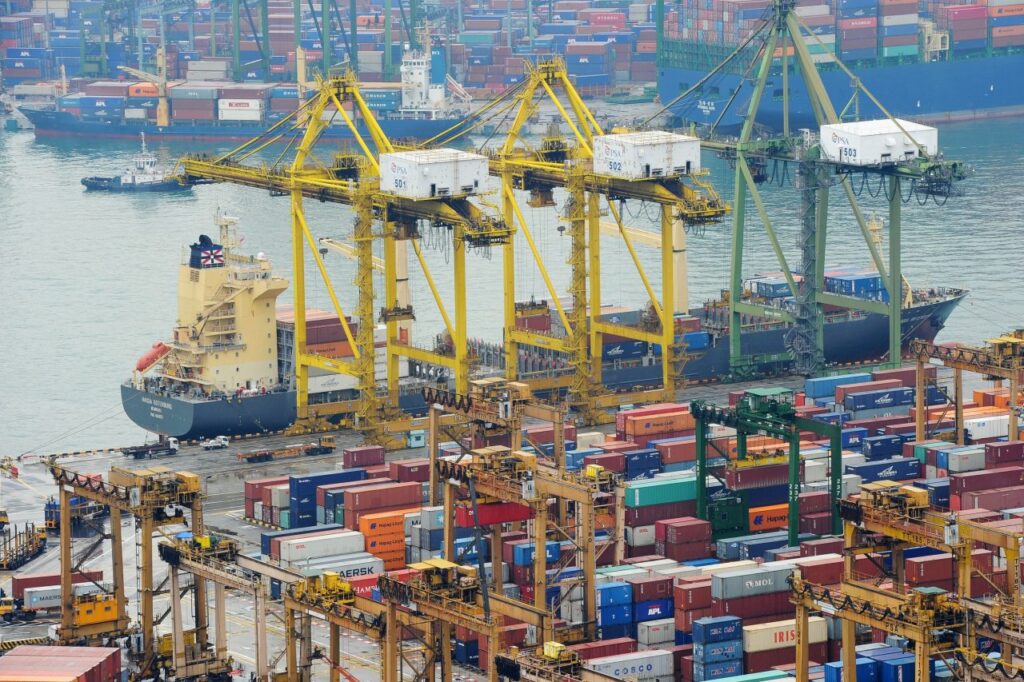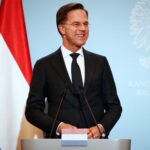
In Greek mythology, Dionysius was one of the 12 Olympian deities, including Athena, Artemis, Apollo, Ares, Demeter, Hera, Hermes Poseidon, Zeus et al. Dionysus was the god of harvest and vegetation, and as was the norm, given its positive connotations, the name was adopted by many. Succeeding his Greek father, Dionysius I, Dionysius II was a political leader through 367 BC and 357 BC, ditto through 346BC to 344 BC.
Legend tells of the sword of Damocles, which simply implies the ever-constant threat of danger encountered by powerful persons/institutions. Damocles, an aide to Dionysius II, often flattered the latter, regaling him with accounts of his sublime majesty and conquests. One day, Dionysius II, requested they briefly traded places so Damocles could experience real power and its trappings. However, this was subject to the rider of a sword perilously positioned and oscillating right above Damocles’ temple. In mortal fear, and appreciating the pestilence of power, Damocles pleaded with the Dionysius II, to enable him return to his normal life. This account speaks to the power paradox. Powerful persons, whether natural or unnatural, wield enormous influence, often over life and death, however their power is bounded by superior power, counterbalancing forces, uprising and vox populi.
That historical detour segues to the strategic dilemma confronting the North Atlantic Treaty Organisation (NATO) today, relative to the Russian/Ukrainian war; effective February 24, 2022. NATO, confronts a sword of Damocles and the power paradox. Its vast military capacity is bounded by the countervailing defence capacity of Russia. Powerful as NATO is, does it have the wherewithal to not only confront Russia in battle, but to do so, and convincingly win? If so, at what human, socio-economic and environmental costs? Will a further Eastbound NATO expansion compound an already complex and volatile situation? How might NATO react to a Russian decision to deploy biological or nuclear weapons against Ukraine given toxic rhetoric? The risk of World War III, even amongst the most dovish observers, is plausible. Does NATO have a robust strategy for mitigating this risk without appearing spineless? When will serious diplomacy and realpolitik occur?
The dominance of the United States and Western allies in the global balance of power appears, objectively, fractured. That proposition is informed by Russia’s strategic military counterbalance, its expansionist moves in the Crimean Peninsula, the emergence of China, India and the Global South. And what’s been described as inflexible decision-making mechanics of the United Nations Security Council (UNSC); with the zero-sum game effects of the exercise of veto powers by permanent members.
These are complex issues none of which afford simplistic solutions. Nevertheless, the aim in this treatise is to highlight options for pragmatic resolutions, which will demand courage, compromise, good faith and strategic intelligence. NATO is a military alliance of western countries formed in the aftermath of WWII (1939-1945), pursuant to the North Atlantic Treaty of 4 April 1949. It is governed by democratic principles and comprises 31 members states. The 12 founding members were USA, UK, Canada, Belgium, Denmark, Italy, Portugal, and France. Other founding members were Iceland, Netherlands, Luxembourg and Norway. Turkey joined shortly afterwards in 1952. The most recent member state, Finland, was only admitted on April 4, 2023. In geostrategic terms, three NATO member states, the United States, France and the United Kingdom are nuclear super powers and they are permanent members of the UNSC with veto-wielding powers. This implies huge, if not commanding, influence over global security issues.
De jure, Article V of the NATO Treaty, provides that “the Parties agree that an armed attack against one or more of them in Europe or North America shall be considered an attack against them all and consequently they agree that, if such an armed attack occurs, each of them, in exercise of the right of individual or collective self-defence recognised by Article 51 of the Charter of the United Nations, will assist the Party or Parties so attacked by taking forthwith, individually and in concert with the other parties, such action as it deems necessary, including the use of armed force, to restore and maintain the security of the North Atlantic area”. The second limb of Article V affirms that “any such armed attack and all measures taken as a result thereof shall immediately be reported to the Security Council. Such measures shall be terminated when the Security Council has taken the measures necessary to restore and maintain international peace and security.”
Interestingly, but perhaps controversially, Article 10 of the NATO Treaty, establishes the mechanism by which other European countries may, by consensus of existing members, join NATO. This provision lies at the heart of NATO’s enlargement and “open door” policy. It forms the basis of NATO’s recognition of Bosnia and Herzegovina, Georgia, Sweden and, crucially, Ukraine as prospective members. Ukraine’s aspiration to join NATO, which is an entirely legitimate objective is, arguendo, the basis of Russia’s war with that country. The argument is straightforward. Russia, considers Ukraine, formerly part of the United Soviet Socialist Republic, an integral part of its geostrategic orbit, and will not countenance a NATO country on its “doorstep” without a fight. That’s simply because Russia views NATO as, at best a strategic threat to its national interests; and, at worst, an enemy which must be resisted, by all means.
This dynamic is compounded by the fact that by law, NATO cannot activate Article 5 because Ukraine is not (yet!) a NATO member. However, Ukraine’s non-NATO membership is not the same thing as operational paralysis by NATO. Quite the opposite. De facto, NATO is actively engaged in the on-going Russian/Ukrainian war even though it has not officially deployed troops to the war front. It is actively providing Ukraine military assistance, strategic intelligence, equipment, aerial and terrestrial logistical support. This, is in addition, to the western economic blockade of Russia costing the latter approximately USD 1 trillion. Since the 2022 invasion, USA, NATO’s largest contributor, has committed USD 33.2 billion in assistance to Ukraine. Britain’s committed USD 2.3 billion whilst executing Operation Interflex. The latter entails training 30,000 new and existing Ukrainian troops by the end of 2023. Likewise, the European Union, via the European Peace Facility (EPF), has committed €5.6 billion towards the procurement of ammunition and artillery to replace dwindling stocks.
These complexities highlight pertinent inferences. First, NATO was caught unawares by the Russian invasion, first of the Crimean Peninsula in February/March 2014 and then of Ukraine itself in February 2022. Surely, NATO cannot be everything to every and its primary obligation is to its members. However, the effectiveness and added value of Article V of the NATO Treaty are called into direct question when sovereign states are invaded, unimpeded, by powerful states, and the UNSC is incapable of acting owing to geostrategic inertia.
Second, NATO will interpret Article V widely, as it is clearly doing, in Ukraine, even though the latter is not yet a member of the alliance. Third, the extant state of affairs speaks to the mechanisms of sanctioning new NATO members. Is it too rigid and therefore incapable of swiftly addressing issues of this nature where proper diplomacy has failed?
Fourth, irrespective of NATO membership, the invasion of any European state potentially poses a threat to all others not just in military terms, but in socio-economic terms including huge migration patterns, legitimate asylum claims, plus variable impacts on social cohesion and public support mechanisms. Fifth, NATO, inherently recognises this quandary, as exemplified by Finland’s admission to the defence compact on April 4, 2023.
Nevertheless, are Russia’s concerns about NATO encroaching upon its geostrategic orbit justified? The simple answer is no! Ukraine is a sovereign nation and can exercise its sovereignty in any way it chooses under international law, including joining NATO! This proposition is reinforced in Events: The Force of International Law 2011 ed. Johns & Ors per Beard J. viz “international law certainly maintains the formal principles of territorial integrity and sovereign equality as basic norms” However, the simplicity inherent in the natural interpretation of the finer principles of international law, are often routinely upended by the big five nuclear superpowers on the UNSC: United States, Russia, China, France and the United Kingdom; where their geostrategic interests collide.
So, although Ukraine will, in all reasonable probability, be admitted to NATO, Russia has proven, through its Ukrainian invasion, supported by Belarussian forces, of February 24, 2022, that it will not accept it without a battle. That’s clearly a violation of the UN Charter Article II of the 1945 UN Charter concerning the sovereign equality of all Member States and the prohibition of the use of force against the territorial integrity of any state in any manner inconsistent with purposive aims of the United Nations. Of course, Russia, appreciates that only too well, as a veto wielding, nuclear superpower, member of the UN Security Council.
Rightly or wrongly, Russia justifies its actions on the premise of defending its own subjectively defined geostrategic interests. And, equally, on the basis of historical precedents, including the United States-led 2003 invasion of Iraq in breach of international law. The UN Security Resolution 1973 adopted on March 17, 2011 is interesting in this context. The resolution authorised military action against Libya, then under Muammar Gaddafi’s dictatorship. The resolution was supported by the USA, UK, France and others with abstentions from Russia and China et al. That resolution pitched strategic rivals on different sides of the resolution. In the end, NATO enforced the resolution and Gaddafi’s Libyan regime was brutally toppled. Since then, Libyan has been a cesspit of chaos and catastrophe! Writing in the New York Times on the day of the Russian invasion of Ukraine, February 24, 2022, Roger Cohen, alluded to the Russian President, Vladimir Putin’s characterisation of the United States as an “empire of lies.” In the same piece, Putin emphasised that Russia “remains one of the most powerful nuclear states” possessing “advantage in several cutting-edge weapons”
The deductions could not be clearer. The Russian vs United States/western rapprochement over nuclear disbarment and non-proliferation has broken down. Russia’s stance therefore is that if the United States (NATO super heavyweight), its major strategic opponent, can execute military actions in defence of its geostrategic interests anywhere in the world, directly or indirectly (via NATO), so can Russia. These dynamics therefore demonstrate the limitations of the rules -based orthodoxy of international law. And, that where superpowers’ geostrategic interests are concerned, might is right.
Ending, NATO’s sword of Damocles dilemma is real. Seek peace with Russia and appear supine. Go head-to-head with Russia in a direct nuclear confrontation and risk a WWIII with near certain catastrophic outcomes for humanity. Doing nothing is clearly not an option and tedious circular arguments and counterarguments over Russia’s invasion of Ukraine will linger by opposing sides. This piece therefore recommends: a negotiated, imaginative, and a courageous resolution of the dispute by neutral independent parties via indirect talks and simplification of NATO’s admittance mechanisms in the interest of collective security and defence; ditto executing UNSC Chapter VII resolutions. Afterall, as Henry Kissinger prophetically opined in Diplomacy (1994): “Russia will always be essential to the world and…a potential menace to it.”
Ojumu is the Principal Partner at Balliol Myers LP, a firm of legal practitioners and strategy consultants in Lagos, Nigeria.












